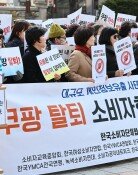Rapid Increase in Capital Liquidity
Rapid Increase in Capital Liquidity
Posted May. 28, 2007 03:25,
Floating capital that has not found any investment opportunity has flowed into the stock market recently.
The amount of customer deposits that stock investors have entrusted to securities companies increased to 12.399 trillion won as of May 22, up around four trillion won in less than four months, from 8.536 trillion won at the end of January this year. The increase rate of the amount of capital influx into overseas funds was more rapid; the amount of trust money almost doubled to 36.162 trillion won from 19.814 trillion won over the same period.
Cho E-seon, head of the Daechi branch of Mirae Asset Securities Co., analyzed, Let alone corporate capital that has no feasible investment opportunity, real estate related capital, including land compensation money, is flowing to the domestic stock market due to the real estate market slowdown.
Excess liquidity is the basis of the capital influx into the stock market, a situation in which the open market is overwhelmed with money.
The total money supply (M2), one of major monetary indicators, marked 1,153.4510 trillion won (average balance) in March 2007, up by 11.46 percent year-on-year. This increase rate is on the similar level to the M2 increase rate of 11.48 percent in 2002 when what was called credit card commotion took place. M2 is a monetary indicator, which includes open market financial instruments, such as time deposits, installment savings deposits, and certificate of deposits (CD), shared dividend instruments such as beneficiary certificates, and financial bonds, as well as cash and settlement accounts.
One of the reasons why money is overwhelming the open market is, first of all, that corporations are reserving incomes without making facilities investment.
According to the Korea Exchange, 537 listed manufacturers retained earnings rates marked 637.57 percent as of March, the highest rate ever recorded. In particular, the top 10 groups retained earnings rates amounted to 741.47 percent. The retained earnings rate, the retained earnings amount divided by capital stock, is an indicator that shows how large of an amount a company has reserved based on capital earned by sales and other businesses.
A securities industry expert explained, Considering that entering this year, each securities company had corporate client investment amount increases, it seems that corporate capital with no alternative investment opportunities are flowing into the stock market.
Some analysts say that excess liquidity in the open market is also encouraged by banks, which are promoting small and medium sized company loans this year following their mortgage loan promotions last year.
The amount of small and medium sized company loans increased to 312.4 trillion won at the end of April, up 7.9 trillion won in one month, from 304.5 trillion won at the end of March this year. This was the largest increase ever recorded on a monthly basis since the end of 2000, when monthly statistics were first made.
It is also a reason that land compensation caused by government and public organization real estate development projects has been offered. The land compensation money amounts to a total of 7.7 trillion won this year alone, including 5.2 trillion won from the Korea Land Corporation and 2.5 trillion won from the Korea National Housing Corporation.
It has been analyzed that the capital that has recently flowed into the stock market includes a fair amount of real estate-related investment capital.
However, many analysts point out that surplus money or floating money for real estate investment is flowing into the stock market to look for alternative investment opportunities, not that money gained by real estate sales is flowing into the stock market to evade restrictions on real estate transactions.
The excess liquidity is a concern for the Bank of Korea-
The Bank of Korea (BOK) is hard pressed to come up with a solution to the excess liquidity.
The BOK is considering raising the interest rate to resolve the excess liquidity, but the economic slowdown that may ensue is an undesirable side effect. Also, increases in the interest rate could cause an overseas capital influx.
Kwon Soon-woo, senior researcher of the Samsung Economic Research Institute, pointed out, Increasing interest rates in the open economy will result in promoting overseas liquidity inflows and thus is very likely not to work.
The issuance of monetary stabilization bonds to control the total money supply will increase interest payments leading to liquidity increases. The interest paid by the BOK issuing monetary stabilization bonds last year amounted to 6.806 trillion won.
Kim Jeong-sik, professor of the Economics Department at Yonsei University, said, Domestic capital should be flowing overseas. But the problem is that domestic financial institutions dont have enough experience in overseas investment and thus feel uncomfortable about it. They end up investing in domestic market.
Huh Nam-kwon, senior director of Shinyoung Investment and Trust Management Co., showed his concern, saying, It can adversely affect the national growth potential if corporations are putting into the stock market the capitals that should be invested for actual businesses.
Meanwhile, some people say that the excess liquidity is not such a serious issue.
Huh Chan-kook, head of the economic research office of The Korea Economic Research Institute, said, Over the past years, the excess liquidity was the cause of sudden increase in real estate prices. We have to give some thoughts to kind of problems that could result from liquidity increases, but currently, its not that serious of a situation.
ssoo@donga.com kimsunmi@donga.com



![요양원 321곳 중 85곳 “치매발병후 기초수급자 전락 사례 있어”[히어로콘텐츠/헌트③-下]](https://dimg.donga.com/c/138/175/90/1/wps/NEWS/IMAGE/2025/12/16/132980397.1.jpg)



